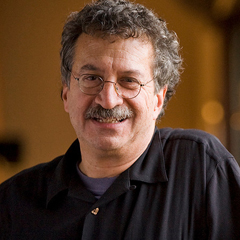The need for quick, sustainable, global transformations versus our relative inaction appears to be a complete paradox. It’s so obviously in our own collective, as well as individual, self-interest to act on many pressing environmental issues. It’s often in our own financial self-interest to change. Yet we’re still far from seeing the sort of positive futures represented by such alternatives being holistically adopted.
Futurist Richard Slaughter, writing The Biggest Wakeup Call in History, lays out the challenge:
…when we come to issues such as global warming, [time is] exactly what we don’t have. However we choose to proceed we’re now set on a path that leads through a period that will test humanity as never before. In the process, the most vulnerable areas will likely see dramatic decreases in human populations.
Richard explicitly looks for what may take us through the needed transformation – an ‘awakening’.
For some, such a transformation may sound far fetched. From a technical standpoint, looking at our very significant ecological debt, achieving global and deep structural sustainability transformations looks very hard. However, there’s more than just measurable carbon dioxide levels and technology that may create such a shift.
In this great audio Robert Kegan, Professor in Adult Learning and Professional Development at Harvard, explains the Self-Transforming Mind. Humans are at a unique point in history. We are both the makers of our own peril, we know we are in a peril race and, at the same time — with greatly expanded lifespans and wisdom that this may bring with age — we have the capacity to address this.
Kegan’s talk briefly explains how we (can) move through more mentally complex stages in life and the distinct step changes that are characteristic of these shifts. His model of human development results from decades of study but this talk is mostly presenting his “big idea”. This is that the very longevity of our lifespans – in part also a determinant of the stresses placed on our biosphere – may also enable our older centre of gravity to figure out how to save our species.
Older people are more likely to reach Kegan’s fifth and final ‘mental complexity’ stage, the self-transforming stage. With this comes vital capacities that make it more likely we can manage, act on and move past many of the barriers which have left us facing “the biggest wakeup call in history”.
Photo: Robert Keegan Title: Matthew Mezey

Recent Comments